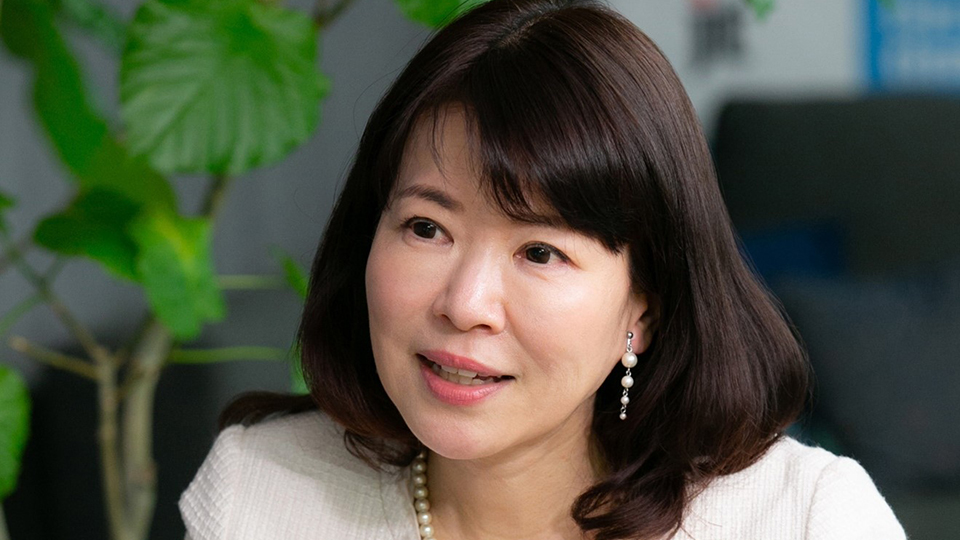

February 10, 2025
As the world deals with the dual challenges of energy security and environmental sustainability, few experts offer the depth of perspective that Sumiko Takeuchi brings to the table. With a career dedicated to energy policy, Ms. Takeuchi’s unique blend of legal insight and environmental advocacy has positioned her as a leading voice in the push toward sustainable energy in Japan. As an advisor and investor in startups, she also champions women-in-green-technologies, and sets out her aspirations for green technologies in the future.
Sumiko Takeuchi’s work on environmental issues began in an unlikely place: at Tokyo Electric Power Company (TEPCO), which is Japan’s largest electric utility. “I studied law at university,” she reflects. “After graduating, I was in charge of the environmental department at TEPCO.”
She had to oversee the conservation efforts at Oze National Park, a role which she credits for fundamentally shaping her outlook towards environment and climate change. “Oze is a symbol of abundant nature for the Japanese people,” Ms. Takeuchi explains.
Oze had initially been listed as a spot for the development of a hydroelectric project, but was eventually preserved as a national park. It was a decision that reflects a broader tension in energy policy, which is balancing development considerations with conservation efforts.
Ms. Takeuchi notes that her experience of working at Oze National Park helped her understand the complex realities of managing energy infrastructure while safeguarding natural resources.
According to Ms. Takeuchi, a comprehensive policy approach that balances energy stability, economic viability, and environmental sustainability – underpinned by innovation and intellectual property (IP) – is fundamental for viable climate action.

Commercialization of innovative ideas in the green technology sector remains a major challenge.
Startups often struggle to compete, mainly due to the high costs associated with developing the green technologies and bringing them to market.
Ms. Takeuchi says.
With consumers often choosing cost efficiency, many green technologies can potentially be sidelined due to higher costs. “The difference between green and conventional products lies in their environmental value. Consumers are often unsure whether the environmental value is sufficient to justify the higher price”, she notes.
“Green steel is a prime example of a technology that is still struggling to find its place in the market due to higher costs,” she further notes. “If the market were to choose green energy, it would be easy to commercialize, but such market is not yet fully developed”.
Startups will continue to play an important role in driving sustainable innovation.
Ms. Takeuchi advocates for strategic collaborations for startups, including with established corporations. For instance, the startups can focus on innovation while larger companies handle market scaling.
“In social infrastructure businesses like energy, expanding scale is an important factor for reducing costs and ensuring stable use of technology,” she emphasizes.
“Divide roles could be much effective: startups create the seeds of technology and services, then startups and large companies collaborate to develop them, and finally large companies take the lead in rapidly spreading them to society.”
Conducive government policies that incentivize green technologies, coupled with increased public awareness are also supporting factors that can help catalyze innovation in the green technology ecosystem.
A strong IP portfolio can be the key to attracting business investment, particularly for early-stage start-ups.
Ms. Takeuchi is one of the founders of U3 Innovations LLP, which operates a platform to support collaboration between startups and large corporations, while also making investments.
The mission of this firm is to support the creation of new industries that look at sustainability beyond energy supply.
One of its recent investments is in TOWING Co. Ltd., a Japanese green and agritech venture that started at the University of Nagoya, Japan. TOWING Co. Ltd. developed Soratan, a biochar that improves soil and reduces chemical fertilizer use. The underlying technology is patented.
Ms. Takeuchi is also a leading voice on the role of women in green technology, and recognizes the gender gap in the sector but sees it more as a reflection of broader industry trends than specific barriers.
There are relatively few women in the energy services technology sector, but this is more likely to be a reflection of broader industry trends than specific barriers within the field,
Ms. Takeuchi notes.
She also expects that there is a lot of potential for women to stand out in energy services technology.
Success stories and visible role models can inspire more women to enter and thrive in the green technology sector. “When women see others like themselves succeeding in the field, it can inspire and motivate them to pursue similar paths,” Ms. Takeuchi adds.
Securing a stable electricity supply is a social responsibility. “Energy always comes down to stable supply and economic viability,” Ms. Takeuchi notes, highlighting the need for energy policies that integrate environmental considerations without compromising on practicality.
Ms. Takeuchi is cautious about waiting for a singular, groundbreaking technology to revolutionize the energy sector. “Continuous technological development and realistic implementation are key. We need sustained, practical efforts,” she notes. Where possible, existing technologies should also be made more carbon efficient.
Her insights serve as a reminder that while the journey toward a sustainable energy future is complex and challenging, and the way forward is with the right blend of innovation, collaboration, and pragmatic policymaking.